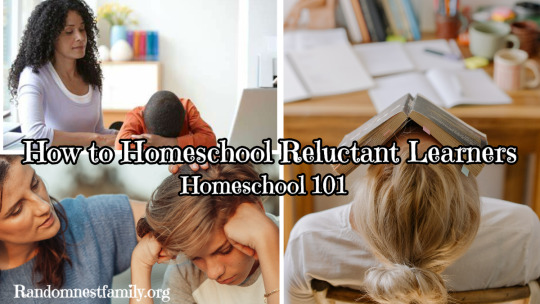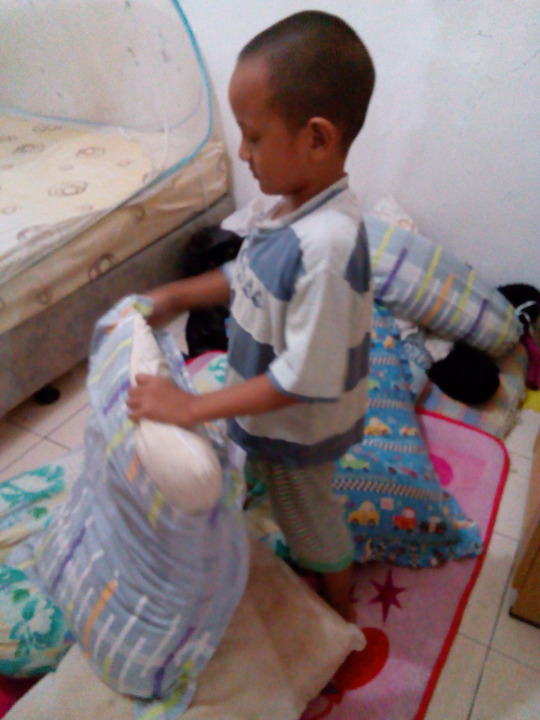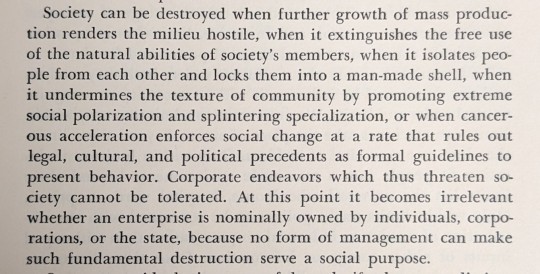#deschooling
Text
Deschooling Yourself
Wrote this in a radical unschooling forum. For context, deschooling is the process where a kid who has previously been raised under an authoritarian paradigm gets used to being able to follow their own impulses around how to spend their time. It's often a process where they indulge in extremes of those things they were previously not allowed to do, though this is temporary. (The older the kid the longer this process takes; so as I started my inner process as an adult, it has been a difficult one).
--
My development with self-deschooling continues...
I feel like I've made deep progress in the last couple months, something that I feel is connected to my participation in this community (perhaps not just that the community has helped, though it has, perhaps also I've gravitated here because of the shift in me).
Let's go back fifteen years. I'm about 20, still full of rage, and I've heard of unschooling and deschooling. I decide to deschool myself. And because I'm now expected to transition from enslavement in school to enslavement in a "normal" job, I decide to call this unjobbing.
I quite successfully manage to avoid having a job with a boss for all but 5 months of these fifteen years, which is -- coincidentally or not (not) -- the amount of time I needed a job to qualify for German state benefits. It's been exactly what I needed, relatively speaking, but it hasn't been *objectively* healthy. My life has been EXTREMELY avoidant. If I am one day to teach people how to deschool / dejob themselves, I don't think I'll be exactly a role model like this, at least not for anyone but the most radical.
Deschooling myself has been a thread in my personal development ever since the concept came up for me, but sometimes it's been more in the foreground and sometimes more in the background. I've always been terrified of what I saw as a vicious cycle of getting a "normal" job and letting the obedience conditioning get stronger in me.
Two things seem relevant now: my study of Nonviolent Communication, which I've mentioned here before, in many ways the antidote to authoritarianism; and my practice of Alchemy (following Catherine Maccoun's writings). Alchemy I would sum up as a deep trust in the processes of a human soul, and a dedication to working with, and not against those processes.
If I had wanted to have a very functional life, I might have overridden my desire to avoid any trace of social obedience training. It'd have felt like I was killing myself, though, so I did the alchemy approach; I surrendered to this impulse, and trusted. The soul is wise, often wiser than we think when we look at something and label it "lazy" or even "insane".
A year and a half ago I was rewarded with an awakening experience, of a sort -- not like full on enlightenment or whatever, but enough spiritual energy injected into my life that I now feel I could argue with Eckhart Tolle from a place of authority... and anyway, I transformed a LOT, grew a LOT in my manifesting ability, intuition, spiritual attunement, etc. I identify this moment as the moment I became, in general, happy, as opposed to living a story of strife and suffering.
A lot of the time since then has been a process of integration and embodiment of what I've learnt. This year I've been noticing the spring in nature like never before; and inwardly, I feel like I'm in the spring of my life. Or, if I'm in the morning of my life, to use another metaphor, let's say I'm stretching and getting my morning coffee. I'm slowly, slowly getting in gear. (Whoops, yet another metaphor. Hope you can keep up).
In this process, deschooling is becoming an important thread again. I will never live a life of harsh "discipline" -- that much is clear. So how to live a life of inspired action, gentle action, action that does not come from inner "shoulds", inner threats of punishment?
It seems really important to take the perspective of reparenting my inner child, or inner children. Let's take the example of food. I am trying hard to lose weight (30 kilos/60ish pounds down, ten kilos to go) and I'm not satisfied with the approach of completely letting go and eating *whatever*.
But what I've been realising recently, which seems to have been a big "aha" moment for me, is that completely letting go isn't really parenting myself -- peacefully or otherwise. In terms of what I'm doing with my inner child, it looks more like neglect.
And that's the big mistake people keep making with peaceful parenting, right? They assume that if they are to skip authoritarianism, they need to just kind of check out from parenting altogether, right? (How could I be making this basic mistake, I ask myself? In my defense, I have the thought that it's essentially the *only* mistake, the one deeply rooted mistake all others come from).
So with the topic of eating, I'm tentatively seeing it this way. My inner child who loves to eat (or who is scared of being controlled around eating, and so eats fast and wild) needs my PRESENCE.
Sometimes, I might see a certain action as dangerous (for example eating so much I get sick), and will use a certain amount of force to restrain myself -- not punish, without any thoughts of punishment, only gentle loving restraint.
If my inner parent is panicking about how I eat, I'd like to take a moment to consider when such restraint is healthy and necessary, and then once I have a clear idea of that, I can step back with my inner helicopter parenting.
Then I need to give my inner child PRESENCE. Be lovingly with the part of me that is scared of not getting the food that feels nourishing. Or with the part of me that eats to feel emotionally safe. Or that just wants to enjoy things with abandon and feel alive.
Be present while I eat. Even if I'm eating like a pig (so long as I've decided that the situation doesn't call for actual restraining). *Especially* then. My inner child needs love all the time, and doesn't need to be judged with words like "eating like a pig" (whoops -- I did it to myself. Sorry, beloved me).
I believe that with enough love and presence, my tense, defensive inner child parts can gradually relax. In that relaxation will come the opening to genuinely, enthusiastically consider things like... like salad, for instance :)
Then it won't feel like self discipline.
Then it will feel like joy and self love.
Then I'll be the role model of freedom and healthy self-relationship I dream of being.
This is worth it.
I'll keep you updated. :)
#wisdom#deschooling#unschooling#radical unschooling#peaceful parenting#self development#self growth#personal development#self motivation#self discipline#nonviolent communication
2 notes
·
View notes
Text
just some stuff about schools worsening social anxiety
tw: school, general talk of being trapped/controlled⚠️⚠️⚠️
schooling system traumatising for certain groups. it is specifically and systematically cruel to autistic people and to people with situational mutism, and to so many other people.
but also generally, it’s bad for people. deeply controlling. you cannot go anywhere or do anything without permission. constantly being watched, your actions having to be justified. anyone who acts differently or has more needs than average, is sanctioned for it, formally and informally. there’s nowhere to go and hide, nowhere to be alone.
schooling exaccerbates social anxiety so much because you’re constantly seen; there are so many eyes. (and no, i don’t care that “that’s what they have to do to keep you safe”; they set up a system in which humans are stuck in locked buildings for hours on end - then they try to keep you safe within it??).
a fair few people with sad get markedly better just from leaving school. im so so so glad im out. you have no idea. my mental state is improved solely because im out now. for me, school was deeply traumatising in specific ways because of my sm. and i won’t ever forget that.
social anxiety is not just caused by internal processes; environment plays a role in the maintenance or worsening. we’re not just talking accomodations here, we’re talking deschooling. while social anxiety disorder itself involves amplification, there were probably still ways they could have made you feel safer, and there were probably several ways they made it worse.🌹🌹
#(think the word im looking for is culpability)#social anxiety disorder#actually mentally ill#mentalheathawareness#mad punk#deschooling#actually socially anxious#social anxiety tag
13 notes
·
View notes
Text

Deschooling Society by Ivan Illich with a cover design by David Pelham.
3 notes
·
View notes
Quote
To take the measure of something does not guarantee that we will understand its meaning, in fact, it may very well prevent us from doing so.
L.M. Sacasas, ”Whose Time? Which Temporality?”
5 notes
·
View notes
Text
Heidegger's Authentic Being-in-the-world: Dasein & Deception-Awareness, Toward Convivial Futurism
GLOSSARY
Dasein: humans interacting with the world, and with each other; indeterminate, but aware
Authenticity: the degree of alignment to and coherence with one’s beliefs; not wholly living in the present, past, or future, but looking back to one’s birth, before that to history, ahead to one’s inevitable death, and beyond to humanity’s future.
Convivial: freedom realized in personal…

View On WordPress
#adam lehrer#alexander bard#American Behaviorism#anarchist#attentionalism#biohacking#burnout society#byung chul han#capitalism#chad cerebration#communism#conspiracy#continental philosophy#control society#culture industry#cyberpunk#deschooling#dystopia#epistemology#ernst junger#french philosophy#friedrich nietzsche#german philosophy#giantgio#homeschooling#ideology#ivan illich#john taylor gatto#libertarian#liquid modernity
3 notes
·
View notes
Text
https://romaniasweetromania.com/2024/01/invatamantul-alternativ-in-romania-montessori-3/

#deschooling#educație#freinert#homeschooling#înscriere la școală#invățământ#invatamant alternativ#invatamant traditional#montessori#pedagogie#pedagogie curativa#planul jena#școală#scoala traditionala#școli#sisteme alternativ de invatamant#step by step#underschooling#unschooling#waldorf
0 notes
Text
I believe that a desirable future depends on our deliberately choosing a life of action over a life of consumption, on our engendering a lifestyle which will enable us to be spontaneous, independent, yet related to each other, rather than maintaining a lifestyle which only allows to make and unmake, produce and consume – a style of life which is merely a way station on the road to the depletion and pollution of the environment. The future depends more upon our choice of institutions which support a life of action than on our developing new ideologies and technologies.
Ivan Illich
0 notes
Text
I’m Sick of Homeschool! | How to Homeschool Reluctant Learners
When homeschooling gets tough and it seems like your kids don't want to learn.
.
.
.
#homeschool101 #homeschool #learning #reluctantlearners #randomnestfamily #parenting #convention #education
It’s not even the end of a very long day and already you hear the dreaded, “I’m sick of homeschool! Why can’t I go to public school?” “Where did this come from?” You think, we’ve been homeschooling for years now. Or maybe, you just started homeschooling. You haven’t yet figured out your “groove,” and already the complaints come rolling in, “I hate homeschool!” Or “Why do we have to homeschool…

View On WordPress
#bored of homeschool#curriculum#deschooling#discipline#easy peasy#gifted students#homeschool#homeschool is too easy#homeschool is too hard#How to homeschool reluctant learners#I’m Sick of Homeschool#reluctant homeschoolers#unschooling
0 notes
Text
first steps: deschooling
1 note
·
View note
Text

"Odszkolnić społeczeństwo", Ivan Illich
0 notes
Text
DESCHOOLING

View On WordPress
0 notes
Text
Deschooling: Critical in Transition to Homeschooling!

Online homeschooling is a new learning method for children who want to learn or experience scholastic education while staying at home. As a parent, if you are fairly new to the concept of homeschooling but you are interested in enrolling your children in the best homeschool online programme, then this article will definitely help you out.
Deschooling is a term first coined by Ivan Illich in his book Deschooling Society. It refers to the process of breaking away from the traditional school system – a system that often stifles creativity and independent thought.
In essence, deschooling is the process of moving away from the traditional view of education as something that happens in a school building, with teachers and students, and learning to see things in a new light. The process of deschooling can be difficult, as it requires us to challenge everything we have been taught about education. But it is also liberating and empowering, as it allows us to take control of our own learning and create our own educational experiences. Here are some tips to ease the process of deschooling if you are planning to homeschool your child.
1. Do not try to imitate a regular classroom situation
If you want to set up a regular classroom situation, then it may not work for everybody. You need to remember that in a regular classroom situation, there is tons of work that is amalgamated with a strict routine.
As a parent, it is recommended that you should not have the same attitude as a teacher while simultaneously trying to understand your child better and find out what is the most effective for him/her. If you try to imitate a classroom situation, then it may put a lot of pressure and stress on your child.
2. Begin early in the morning
It is often recommended for parents to begin their daily learning sessions early in the morning and not wait till the afternoon. With the help of this early morning schedule, children can get enough time to complete their homework and assignments as opposed to scrambling at the last minute.
Also, do not give them any electronic gadgets, toys or games before they finish their assignments. But, you can use them as productive support after the completion of their assignments.
3. Give your children proper learning intervals
While your children are learning throughout the day, you also need to make sure that they are receiving proper learning intervals. While they are attending the best online homeschool programs, at the same time they are prone to boredom and distraction. If you want your children to learn properly, then you ought to give them some breaks during their hectic study schedule.
Break the classes into different segments and include breaks in between them. Also, try to dedicatedly follow the daily routine. In case they finish their studies earlier than expected, you can indulge them in different activities or hobbies.
4. Keep the daily routine easily adaptable
Both the parents and children must look for flexibility when it comes to online homeschooling. As a parent, you need to find out what is optimal for your children and set the schedule accordingly.
Some children prefer a home environment instead of a classroom one. Therefore, if you set the environment accordingly, then your child can be more relaxed during the learning period which will effectively boost his or her learning ability. Also, in this situation, even if you keep your child engaged, he or she will accept the change and cooperate at the same time.
5. Try to guide your child through examples
Sometimes your children can come across an early realisation of self-advocacy. Therefore, they can often be dissatisfied as a consumer if they feel that they are being force-fed anything.
For example, sometimes you need to motivate yourself while doing office work. But, at the same time, you need to remember that your children are also watching your every move and how you do your work while you are at home. Therefore, if you want them to be motivated, then you cannot slip from your work and responsibilities as they are directly learning from you and your example.
You can find an online homeschooling platform in India that can adhere to all the above-mentioned details and let your child set the pace of their learning accordingly.
If you are looking for the best homeschool online programme for your child, then you should definitely check out 21K School. They offer the best curriculum and teachings when it comes to online homeschooling. The size of the online classroom has also been kept to a minimum in order to provide maximum benefits of online learning. To provide your children with the best homeschooling environment, enrol them in 21K School today.
#Deschooling#Deschooling Society#Online Homeschooling#Homeschooling#Homeschooling in India#Homeschool Online Program
0 notes
Text
School is the advertising agency which makes you believe that you need the society as it is.
- Ivan Illich, Deschooling Society
#q#quotes#ivan illich#deschooling society#unschooling#mindful consumption#mindful living#mindfulness#advertising#propaganda#sidewalkchemistry
10 notes
·
View notes
Text

from tools for conviviality, by ivan illich
#a little light reading about extreme social polarization today!#im excited to read this and 'deschooling society' by him though#snippets
1 note
·
View note
Text
Sexy petite latina cums
Teen ebony sucks dick for stealing
Hot babe sucks pecker and gets banged doggy at gloryhole
Horny bengali wife fucked by hubby cock with loud moaning and clear bengali audio
Black tgirl fucking guys ass and getting sucked
Thot actually love sucking dick
Nikita soni hot dance in car
HARDCORE BACKSHOTS WITH NICE CUM LOAD!!!
mix de gostosas various hot ass
Bad Girl Slave Hypnosis
#longevity#Fried#Bde#rampancy#retrodden#tripinnate#deschool#Owensboro#voices#analyt#racemize#antelation#blaewort#zwieselite#krills#ungesturing#hard-fleshed#Garlinda#dull-headedness#caressable
0 notes
Text

The beginning of a conversation
How can these processes of transformation be nurtured and defended, not just in their most dramatic and exceptional moments, but all the time? Are there common values or sensibilities that nurture transformative relationships, alive and responsive to changing situations, while warding off both Empire and rigid radicalism? What if joy (as the process of becoming more capable) was seen as fundamental to undoing Empire? What would it mean to be militant about joy? What is militancy when it is infused with creativity and love?
It was with these questions—much vaguer and more muddled at the time—that the two of us began having intentional conversations with several others. And who are we, the two of us? Both of us live in so-called British Columbia, Canada—Nick in Victoria and carla in Vancouver. We come from different generations, and we have pretty different life experiences across gender, class, ability, and education. carla has been involved in deschooling, youth liberation organizing, and other radical currents for a couple of decades now, and she became a mentor to Nick several years ago as Nick was realizing that he was a radical in his mid twenties without many mentors from older generations (a common phenomenon in anarchist and other radical worlds). What began as a relationship of mentorship and political collaboration evolved into a deep friendship. In terms of our organizing, we are both oriented towards prefigurative experiments: trying to contribute to projects and forms of life where we are able to live and relate differently with others, here and now, and supporting others doing the same. Both of us are white cis-gendered settlers, and for us this has meant trying to write in conversation with people with very different life experiences and insights, including Indigenous people, kids and youth, Black people and other folks of color, and genderqueer and trans folks, all of whom struggle against forms of violence and oppression that we can never know. We have also sought to talk to people from a wide variety of movements in many different places throughout Turtle Island (North America) and Latin America.
Over the course of a year and a half we spoke with friends, and friends of friends. This was a unique research process, in part, because we were inviting people into an ongoing conversation, asking them to reflect on and respond to our continually evolving ideas about joyful militancy and rigid radicalism. We formally interviewed fifteen people in all: Silvia Federici, adrienne maree brown, Marina Sitrin, Gustavo Esteva, Kelsey Cham C., Zainab Amadahy, Leanne Betasamosake Simpson, Melanie Matining, Tasnim Nathoo, Sebastian Touza, Walidah Imarisha, Mik Turje, Margaret Killjoy, Glen Coulthard, and Richard Day. We also had many more informal conversations with folks from a lot of different backgrounds, of all ages, who impacted our thinking immensely.
These people are not representatives of any particular group or movement. Nor are we holding them up as the ultimate embodiment of joy, militancy, or radicalism. They are people with whom we share values and who inspire and challenge us. All of them are committed, in various ways, to forcing Empire out of their lives and reviving and nurturing other worlds. They are involved in a diversity of movements, struggles, and forms of life: the uprisings in Oaxaca and Argentina; small-scale farming and urban food justice; Black liberation and prison abolition; Indigenous resurgence and land defense; transformative and healing justice movements; radical ecology and permaculture; scavenging and squatting; youth liberation and deschooling; feminist and anti-violence work; the creation of autonomous, queer, BIPOC{1} spaces; direct action and anticapitalist organizing, and much more, including the beautiful and fierce ways of being that are difficult to capture in words. Experiences among the people we interviewed ranged widely, from long-term commitments to places and communities to more itinerant and scattered spaces of belonging; from being steeped in radical theory to forms of knowledge arising through lived experience; from being well known in radical circles to being known primarily among friends, loved ones, and close collaborators.
Some we interviewed in person, some over conference calls, and others through written correspondence. We have tried to show this conversation—and to keep it going—by including extended excerpts from some of the interviews, putting them in dialogue with our own ideas and with each other. Some people we interviewed were unequivocally enthusiastic about this notion of joyful militancy, offering encouragement and affirmation. Others were more critical, alerting us to dangers, shortcomings, and confusions, and challenging some of our ideas. We have tried to show some of the ways our interlocutors challenged and disagreed with us—and diverged from each other—without pitting anyone against each other in a simplistic way.
We learned a lot from the apprehensiveness of some of the Indigenous people and people of color we interviewed, whose emotions are constantly policed and regulated, and whose struggles are constantly appropriated or erased. We heard from them that centering things like kindness, love, trust, and flourishing—especially when it comes from white people like us—can erase power relations. It can end up pathologizing so-called “negative” emotions like fear, mistrust, resentment, and anger. It can legitimize tone policing and a reactionary defense of comfort. It can fall into simplistic commandments to “be nice” or “get over” oppression and violence. Similarly, pointing to the importance of trust and openness can be dangerous and irresponsible in a world of so much betrayal and violence. These misgivings have taught us to be clear that trust and vulnerability are powerful and irreducibly risky; they require boundaries. They can never be obligations or duties.
We have also found that Spinoza’s concept of sadness can be very misleading. In contrast to joy, it means the reduction of one’s capacities to affect and be affected. Initially, we had been calling rigid radicalism “sad militancy,” drawing on others in the Spinozan current.[7] But while the concept of sad militancy was immediately intuitive for some, for others it was frustrating because of its resonance with grief and sorrow, which are an irreducible part of life and struggle. Interpreted in this light, it could be seen as belittling grief and pain. For that reason, we have decentered the concept of sadness in this book, while trying to hang onto what Spinoza was getting at. In its place, we often use words like stagnation, rigidity, and depletion, connoting a loss of collective power and the way Empire and rigid radicalism keep us stuck there. With joyful militancy we are trying to get at a multiplicity of transformations and worlds in motion, but there is a danger of implying that we are all in the same situation, and erasing difference and antagonisms. BIPOC women, trans, queer, and Two-Spirit people, in particular, have worked hard to show the specificities of the oppression they face and the specificity of their resistance and the worlds they are making.
In the face of this, we have mostly questions and tentative ideas: can joyful militancy affirm and explore a multiplicity of struggles and forms of life without homogenizing them? By attuning us to open-endedness of situations, can joy help us undo some of the universalizing and colonizing tendencies of radical Western theory and practice? Can movements be explored in ways that enable mutual learning and transformation, rather than erasing difference?
Here, we want to return to the dynamic space beyond fixed norms on the one hand, and “anything goes” relativism on the other. Outside this false dichotomy is the domain of relationships that are alive, responsive, and make people capable of new things together, without imposing this on everyone else. It is in this space where values like openness, curiosity, trust, and responsibility can really flourish, not as fixed ways of being to be applied everywhere, but as ways of relating that can only be kept alive by cultivating careful, selective, and fierce boundaries. For joy to flourish, it needs sharp edges.
How do we know when to be open and vulnerable, and when to draw lines in the sand and fight? Who to trust, and how? When are relationships worth fighting for, and when do they need to be abandoned? These are not questions with pre-given answers; they can only be answered over and over again in a multiplicity of ways. A crucial outgrowth of joy and fidelity to it, we suggest, is that people will take different paths and have different priorities. Movements and forms of life will diverge and sometimes come into conflict. There is no trump card that can be used to dictate a path to others: not the state, not morality, and not strategic imperatives of unity or movement-building. Encountering difference might lead to new capacities, strong bonds, and new forms of struggle. Or it might be more ambivalent and difficult, mixing distance and closeness. Or it might mean being told to fuck off. For all these reasons, we try to share some of our own values, and some of the struggles and movements that deeply inspire us, without saying that they are right for everyone or that others should share our priorities.
#joy#anarchism#joyful militancy#resistance#community building#practical anarchy#practical anarchism#anarchist society#practical#revolution#daily posts#communism#anti capitalist#anti capitalism#late stage capitalism#organization#grassroots#grass roots#anarchists#libraries#leftism#social issues#economy#economics#climate change#climate crisis#climate#ecology#anarchy works#environmentalism
18 notes
·
View notes